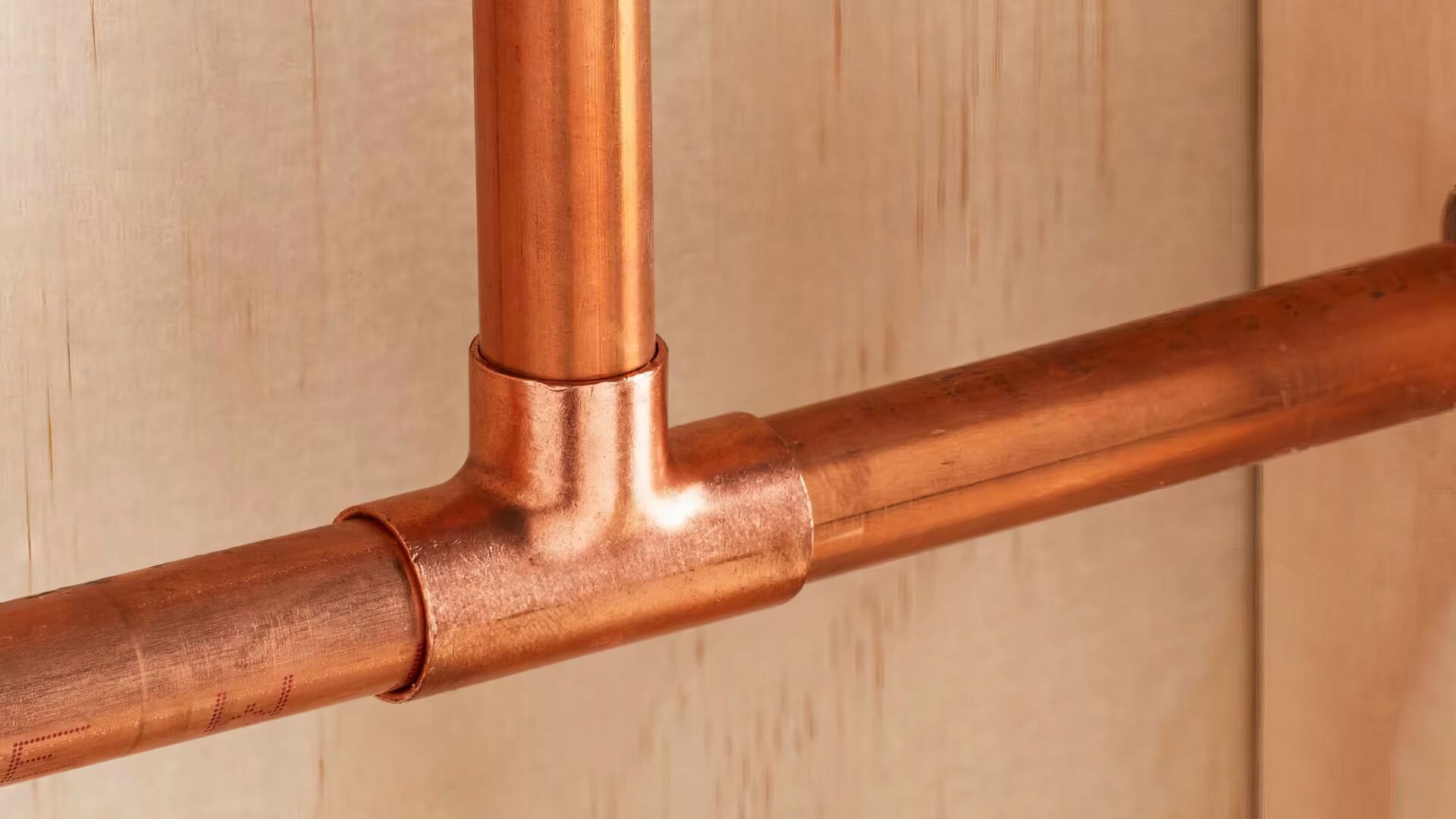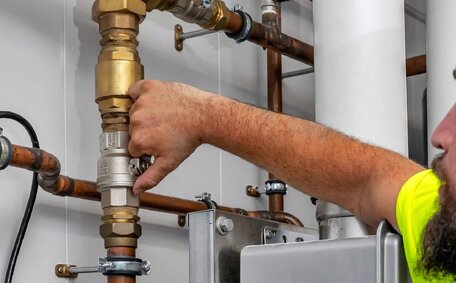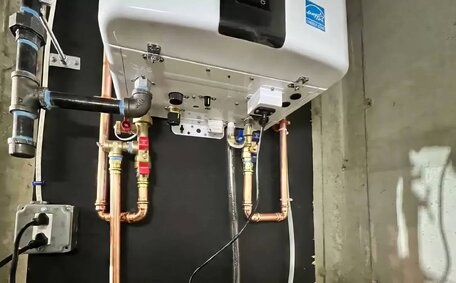Introduction to baking soda and vinegar
Explore the widespread use of baking soda and vinegar in households for a variety of cleaning and cooking applications. The combination of these household staples triggers a chemical reaction, yielding fizz and releasing carbon dioxide gas, making them versatile for cleaning tasks. Discover how baking soda and vinegar can serve as an eco-friendly cleaning solution.
At Epping Plumbing, we’re often queried if baking soda and a cup of white vinegar can be combined for effective cleaning in your stainless steel kitchen sink. Mixing baking soda with vinegar can effectively clean various areas in your home.
We will delve into effective ways to harness baking soda and vinegar for cleaning, alongside tips to incorporate this solution into your routine.
The chemical reaction between baking soda and vinegar
Baking soda, with its high pH, is a base, while vinegar, featuring a lower pH, is an acid. When these two mix, This effervescent interaction exemplifies the dynamic nature of combining baking soda and vinegar.
On a chemical level, the baking soda (sodium bicarbonate) reacts with the acetic acid in the vinegar, but they don’t cancel each other out; instead, they form carbonic acid. The carbonic acid instantly decomposes, demonstrating the efficacy of this reaction for tasks such as rejuvenating laundry. The equation looks like this:
Sodium bicarbonate + Acetic acid → Carbonic acid + Water + Sodium acetate
Carbonic acid → Carbon dioxide + Water
The fizzing reaction, more than just a spectacle, is essential for eco-friendly cleaning. It illustrates how baking soda and vinegar can address persistent grime and issues such as hard water stains and clogged drains. However, it’s important not to overuse this method, especially in areas with hard water, as it can damage pipes over time.
Begin with one cup or less of each to observe the cleaning reaction between baking soda and vinegar. Adjust the cleaning potency by adding equal parts of vinegar and water as necessary. Since the chemical reaction is fleeting, you can apply the mixture directly to the area needing cleaning.
Using baking soda and vinegar for cleaning
When considering how to clean with vinegar and baking soda correctly, they can be an effective solution for many areas around your Epping home:
Kitchen Cleaning
- Ovens - Mix a paste using baking soda and vinegar in a 1:1 ratio. Apply to oven surfaces, let sit overnight, then scrub off with a water and vinegar solution for added shine. The can clean mixture of vinegar is also designed to lift stains and help loosen baked-on grime effectively.
- Sinks - Add a cup of baking soda down the drain followed by 1 cup distilled white vinegar. Allow the baking soda and vinegar to react for 5-10 minutes, then flush with boiling water to help remove soap scum and food residue.
- Garbage disposals - Pour 2 tablespoons of baking soda down the drain, followed by a 1/2 cup of vinegar, and wait a few minutes for an effective drain clean. Let sit briefly before running the disposal to help freshen smells.
- Microwaves - Combine three parts of one tablespoon baking soda with one part water to create a cleaning paste. Spread onto microwave walls and wipe clean with soda water mixture after 5 minutes. Helps remove splatter and water stains with ease.
Bathroom Cleaning
- Toilets - Sprinkle baking soda, about half a cup, into the toilet bowl, and drizzle 1 cup vinegar over top, setting the stage for an effective clean. Let fizz for 5-10 minutes before scrubbing to clean toilet bowl with a brush.
- Showerheads - Prepare a potent cleaning mix by blending one cup baking soda with 1 cup vinegar into a spray bottle, streamlining your cleaning process. Place the bag over the shower head, then spray vinegar into the bag and secure with a twist tie. Let sit overnight before rinsing clean in the morning.
Safety Precautions
Use baking soda and vinegar in a well-ventilated area to prevent inhaling any fumes directly.
Wear gloves and eye protection when dealing with drains and understand how to use the mix safely. Never mix with bleach, hydrogen peroxide, or other cleaners. Wear gloves and eye protection when dealing with drains.
Unclogging drains with baking soda and vinegar
Baking soda and vinegar can effectively DIY-unclog drains blocked by organic materials such as hair, soap scum, and grease. Here are the steps for your washing machine:
- Pour about 1/2 cup of baking soda down the drain to focus on the blockage.
- Add 1 cup of vinegar and be ready to clean any residuals post-fizzing from the reaction.
- Allow the mixture to sit for a few minutes to work on dissolving the clog.
- Pour boiling water down the drain to wash away the loosened debris.
- For tough clogs, use a plunger during the wash cycle or mechanical snake to help dislodge the loosened clog after the mixture has finished reacting.
Repeat as needed, applying fresh baking soda to the affected areas for best results. While this method can help clear minor clogs, Epping residents should be aware it has limitations. Piping issues like tree root invasions or collapsed drains often require professional hydrojetting equipment and expertise to fully clear.
Limitations of baking soda and vinegar for cleaning
While baking soda and vinegar can be useful for some light cleaning tasks, this DIY solution does have its limitations compared to commercial cleaners and professional services:
Doesn’t Sanitise Surfaces
The reaction between baking soda and vinegar can lift dirt but doesn’t disinfect or eliminate germs like many commercial cleaners. make sure your mix of vinegar cleaning solution does not stand on its own, as it may not sanitise counters or other surfaces sufficiently.
Doesn’t Cut Through Tough Grease
Though the two ingredients, baking soda and vinegar, work alongside each other to help dissolve some grease and grime, it likely won’t cut through baked-on messes as effectively as heavy-duty degreasers. The reaction is typically mild and short-lived.
Can Damage Pipes Over Time
Frequent use of baking soda and vinegar to clear drains could wear down pipes and joints. The gas bubbles produced can apply added pressure, and vinegar’s acidity can slowly erode materials. Professional drain cleaning is a safer option.
May Require Repeat Applications
Multiple applications of the baking soda and vinegar mixture might be necessary for desired cleaning outcomes. It may take more effort to tackle tough buildup.
While baking soda and vinegar are convenient and inexpensive, they do not always replace commercial cleaning products and equipment. Reach out to us to discover more about our wide range of cleaning services, all thanks to our team’s expertise.
When to call a professional plumber
While baking soda and vinegar can be handy for minor cleaning and unclogging jobs, there are times when it’s best to call in a professional plumber instead, such as:
Persistent Clogged Drains
If you’ve tried unclogging with baking soda and vinegar several times to no avail, the clog may be more serious. Things like extensive root blockages, grease buildup, or collapsed pipes often require a pro’s high-powered hydrojetting equipment to clear drains fully.
Leaky Fixtures or Pipes
A baking soda/vinegar mixture can’t repair leaks or seal cracks in fixtures and pipe joints. A skilled plumber can identify the exact location of leaks and remedy them properly before water damage worsens.
No Hot Water
Issues with hot water heater tanks, elements, and supply lines can even challenge basic household ingredients. Plumbing professionals have the expertise to diagnose hot water problems and get your system running again quickly.
Whole-Home Plumbing Inspections
Routine drain cleaning with baking soda/vinegar helps with maintenance but doesn’t give a full picture of your plumbing health. Annual inspections by a licenced plumber can identify silent pipe and sewer issues before they become emergencies.
For superior drain cleaning services and plumbing repairs in Epping, trust the capable team at Epping Plumbing. Get in touch today to schedule service!
Contact Epping Plumbing for help
If you’re experiencing drain issues like persistent clogs or abnormal odours from your plumbing drains, it may be time to call Epping Plumbing for expert help.
Our experienced, fully licenced and insured local technicians have the knowledge and equipment to thoroughly clear out blocked drains through specialised techniques like high-powered hydrojetting. Plus, we can use industrial-strength drain cleaning products formulated to dissolve the toughest blockages.
We offer:
- Emergency plumbing services 24 hours a day, 7 days a week to resolve urgent issues
- Sewer video inspections to gain a clear view of your underground drainage pipes
- Whole-home plumbing inspections to identify potential trouble spots before serious problems arise
- Plumbing repairs and replacements for leaky pipes, taps, and cisterns when household DIY efforts are insufficient
I turned to rapid and reliable plumbing solutions in Epping, benefiting from a team with a remarkable 25 years of local expertise. Contact Epping Plumbing today via phone on 1300 349 338 or email us at jobs@eppingplumbingservices.com.au for your next appointment.






